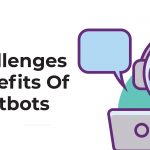Robotic Process Automation is the term that has been gaining traction in the top-functioning industries during the last few years. But what exactly is RPA? Let's discuss; What is Robotic Process Automation? Robotic Process Automation, in the simplest of sense, interprets and captures repetitive processes to trigger automated responses, initiate new actions, and establish … [Read more...] about 6 Industries that Could Benefit from Robotic Process Automation
Robotics
Robotics is becoming prevalent in our lives. It's crucial to understand its implications for the future of work. Discover all you need to know about robotics here.
The Role Of Artificial Intelligence In Agricultural Sectors
Artificial intelligence (AI), sometimes called machine intelligence, is intelligence demonstrated by machines, in contrast to the natural intelligence displayed by humans and other animals. It emphasizes the creation of intelligent machines that act and react like humans. AI-powered technologies are getting to be more pervasive across several industries in the world today; … [Read more...] about The Role Of Artificial Intelligence In Agricultural Sectors
Pros and Cons of AI Chatbots: All You Must Know
AI chatbots are complex computer programs with the ability to mimic human conversations. They can help organizations boost their productivity & business workflow and take the customer experience, to the next level. Forward-looking businesses are leveraging this technology to streamline their operations and grow their business. If you want to stay ahead of your competition, … [Read more...] about Pros and Cons of AI Chatbots: All You Must Know
Insights into Self-Driving Technology
Source: https://pixabay.com/illustrations/car-automobile-3d-self-driving-4343634/ Self-driving technology has taken the world by storm. With immense potential, this development could change the way we commute forever. The many benefits of self-driving vehicles include improved road safety, as well as more accessibility for disabled drivers. Considering this, pioneers in the … [Read more...] about Insights into Self-Driving Technology
Using Computer Vision to improve Health and Workplace safety
Recent developments in the field of training Neural Networks (Deep Learning) and advanced algorithm training platforms like Google's TensorFlow and hardware accelerators from Intel (OpenVino), Nvidia (TensorRT) etc., have empowered developers to train and optimize complex Neural Networks in small edge devices like Smart Phones or Single Board Computers. This has led to a … [Read more...] about Using Computer Vision to improve Health and Workplace safety
What is robotics?
Robotics refers to the branch of technology that deals with designing and operating robots. Robotics also deals with artificial intelligence — the ability of machines to carry out tasks that would normally require human intelligence, like understanding natural language and recognizing objects. Want to learn more about robotics? Datafloq has courses available. Contact us to get started.
What are robots used for?
Robots are used in industrial and commercial settings for welding, fabricating, testing, measuring, and inspection. In addition, they can work in dangerous or difficult environments that would otherwise be unsafe for human workers.
At home, robots are commonly used as vacuum cleaners, lawnmowers, and window cleaners. Some more advanced home robot models can also perform complex tasks such as making a bed or folding laundry. As technology continues to evolve, the number and variety of tasks robots can perform will likely continue to grow.
What are the different types of robots?
There are many different types of robots, each designed for a specific purpose. Some robots are designed for manufacturing tasks, such as welding or fabricating parts. Others are for logistics tasks, such as moving materials around a warehouse. There are also robots that are designed for domestic chores like vacuuming or mowing the lawn.
Each type of robot has its strengths and weaknesses, and the right type of robot for a given task will vary depending on the job’s specific requirements. When choosing a robot, it is important to carefully consider the capabilities of each type to ensure that the right tool is selected for the job at hand.
What are the advantages of robots?
Robots have many advantages over human workers. They can work faster, with more precision, and are not affected by environmental conditions. They can work 365 days a year without rest and don’t require breaks or vacations. Additionally, they are not affected by emotions or physical needs, so they can maintain peak performance at all times.
Robots can also be programmed to perform specific tasks, which helps minimize mistakes. Finally, the long-term costs involved with robots are more affordable, as there is no need for health insurance or other benefits. In short, robots offer several advantages over human workers, making them an attractive option for many businesses.
What is the future of robotics?
In the near future, robots will likely become increasingly commonplace in commercial and residential settings. One area where robots are already making an impact is the healthcare industry. Robots are being used to assist surgeons, transport patients, and dispense medication.
They are also being developed to provide companionship and care for the elderly and infirm. As robotics technology continues to advance, the scope of what robots can do is likely to expand even further. Ultimately, the future of robotics will likely be defined by the imagination of those who create them.







